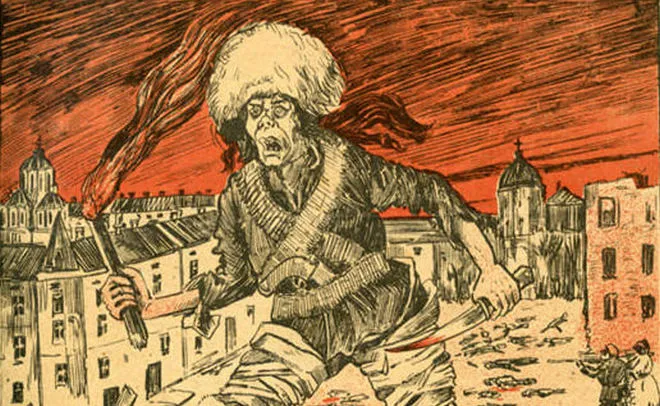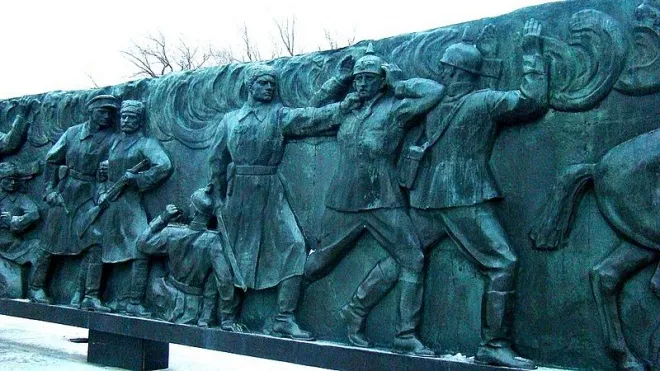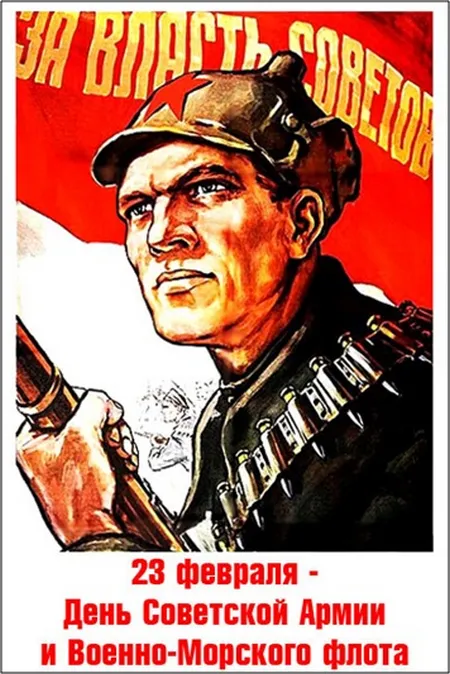Багато десятиліть українці, громадяни СРСР, а потім й України, святкували 23 лютого. У СРСР день 23 лютого офіційно називався - «День Радянської Армії і Військово-Морського флоту»
Особисто я вже давно не святкую цей день, хоча свого часу проходив службу в лавах цієї армії. В мене нема ностальгії по радянському союзу, тому і ті свята, які в тій країні були , мені не цікаві.
Після розпаду СРСР і реорганізації структури Збройних Сил України фактично було закінчено історію Радянської армії в Україні.
А в 2014 році було встановлено свято - День захисника України, яке відзначається щорічно 14 жовтня.
14 жовтня, день Покрови Пресвятої Богородиці, традиційно вважається днем українського козацтва й днем створення Української Повстанської Армії.
Якщо трохи зануритись в історію, то можна побачити, що більшість радянських свят були засновані з надуманих приводів.
Свято 23 лютого- одне з них. З історичних джерел відомо, що радянська влада сама вигадала, що ніби 23 лютого 1918 року відбувся бій між Червоною гвардією та німецькими військами під Псковом і Нарвою, де Червона гвардія ніби то перемогла.
Насправді, в той день ніяких боїв між ними не було зафіксовано. А щодо перемоги в цій битві, то відомо точно, що німці вже 25 лютого повністю контролювали Псков, а 4 березня й Нарву. Ось таку "перемогу" отримали бойові підрозділи більшовицької революції в лютому 1918 року.
For many decades, Ukrainians, citizens of the USSR, and later of Ukraine, celebrated February 23. In the USSR, February 23 was officially called "Soviet Army and Navy Day"
Personally, I have not celebrated this day for a long time, although at one time I served in the ranks of this army. I have no nostalgia for the Soviet Union, so I am not interested in the holidays that were in that country.
After the collapse of the USSR and the reorganization of the structure of the Armed Forces of Ukraine, the history of the Soviet Army in Ukraine actually ended.
And in 2014, a holiday was established - Defender of Ukraine Day, which is celebrated annually on October 14.
October 14, the day of the Intercession of the Holy Mother of God, is traditionally considered the day of the Ukrainian Cossacks and the day of the creation of the Ukrainian Insurgent Army.
If you delve a little into history, you can see that most of the Soviet holidays were founded on far-fetched reasons.
The holiday of February 23 is one of them. It is known from historical sources that the Soviet authorities themselves invented that on February 23, 1918, a battle between the Red Guards and German troops took place near Pskov and Narva, where the Red Guards supposedly won.
In fact, no fighting between them was recorded that day. As for the victory in this battle, it is known for sure that the Germans already had complete control of Pskov on February 25, and Narva on March 4. This is the "victory" achieved by the combat units of the Bolshevik revolution in February 1918.
Джерело
Хто знає, чим би все закінчилось, якби не підписання 3 березня Брест-Литовського мирного договору між Центральними державами і Російською Федеративною Радянською Республікою, який зафіксував поразку Росії та її вихід з Першої світової війни. Німецькі війська зупинились на лінії Псков – Нарва й далі не просувались.
Навіть у радянських військових діячів були сумніви в історичності цієї дати.
Так , в 1933 році нарком по військових і морських справах Климентій Ворошилов на святковому засіданні, присвяченому 15-й річниці РСЧА сказав: ‘ До речі, приурочення святкування річниці РСЧА до 23 лютого носить досить випадковий і важко зрозумілий характер і не збігається з історичними датами’.
А відносно величі самої армії, то навіть Володимир Ленін висловився в статті ‘Тяжкий, але необхідний урок’:’ Болісно-ганебні повідомлення про відмову полків зберігати позиції, про відмову захищати навіть нарвську лінію, про невиконання наказу знищити все і вся під час відступу; не говоримо вже про втечу, хаос, безрукість, безпорадність, розгільдяйство… У Радянській республіці немає армії ".
Who knows how everything would have ended if not for the signing of the Brest-Litovsk Peace Treaty between the Central Powers and the Russian Federal Soviet Republic on March 3, which recorded the defeat of Russia and its exit from the First World War. The German troops stopped at the Pskov-Narva line and did not advance further.
Even Soviet military officials had doubts about the historicity of this date.
Thus, in 1933, People's Commissar for Military and Maritime Affairs Klimentii Voroshilov said at a festive meeting dedicated to the 15th anniversary of the RSCHA: "By the way, timing the celebration of the anniversary of the RSCHA to February 23 is rather random and difficult to understand and does not coincide with historical dates." .
And regarding the greatness of the army itself, even Vladimir Lenin expressed himself in the article "A difficult but necessary lesson": "Painful and shameful reports about the refusal of the regiments to maintain their positions, about the refusal to defend even the Narva line, about the failure to comply with the order to destroy everything and everything during the retreat; let's not talk about flight, chaos, helplessness, helplessness, debauchery... There is no army in the Soviet Republic.
Все в ті часи було так само , як і сьогодні. Вигадуються перемоги, назначаються ‘липові’ герої, заради підняття бойового духу своїх вояк. Але ще з часів Першої світової не можуть викорінити хаос, безрукість, безпорадність, розгільдяйство.
Але українцям на це не варто дивитись, цю ганебну армію можна і потрібно знищувати.
Слава ЗСУ! Разом до перемоги!
Everything in those days was the same as it is today. Victories are made up, "fancy" heroes are appointed, in order to raise the morale of their soldiers. But even since the First World War, chaos, helplessness, helplessness, and depravity have not been eradicated.
But Ukrainians should not look at this, this shameful army can and must be destroyed.
Glory to the Armed Forces! Together to victory!


